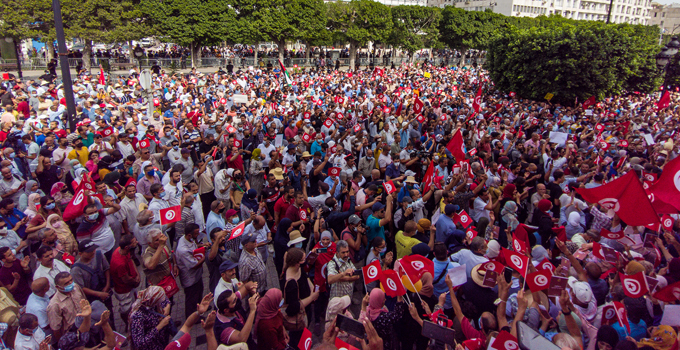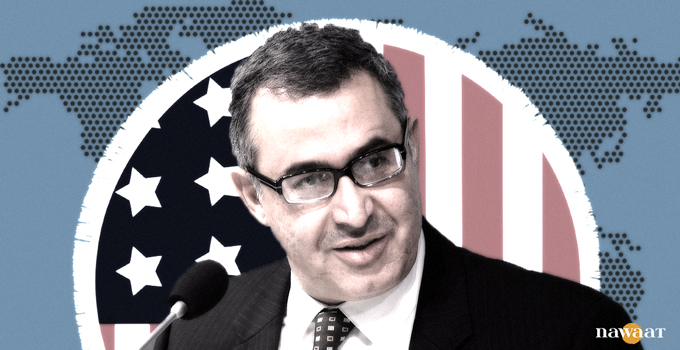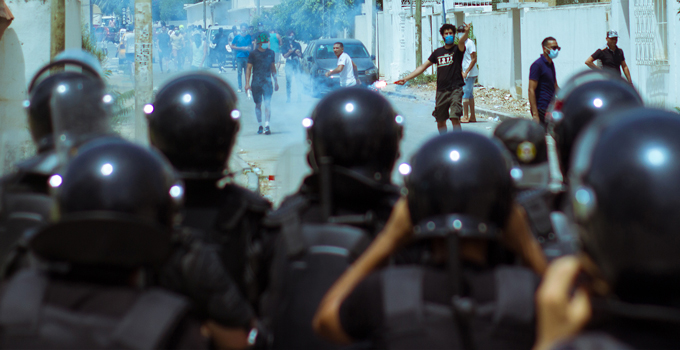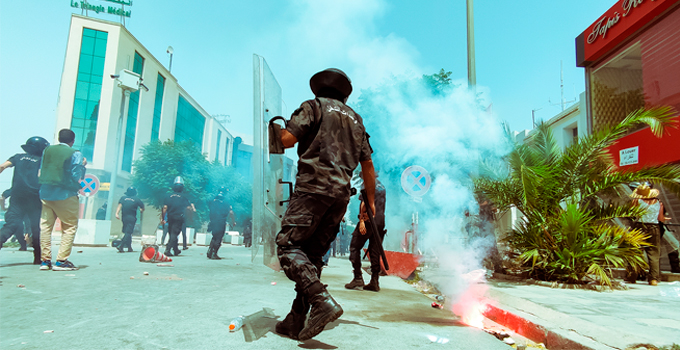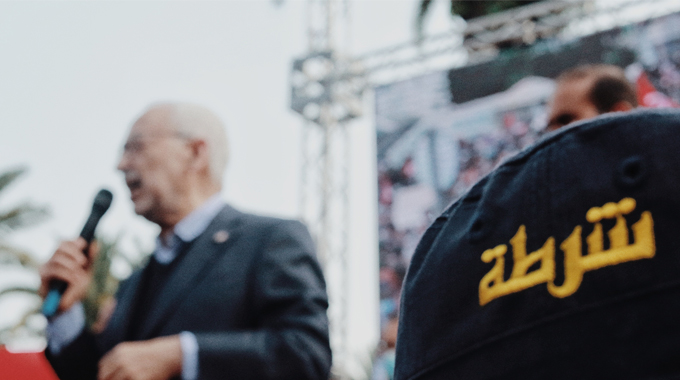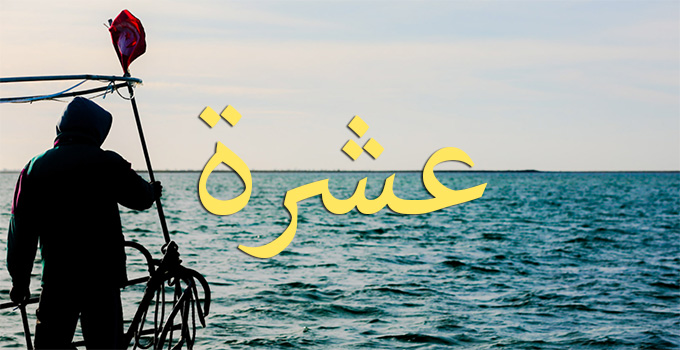On Sunday, September 26, thousands of people, close to Ennahdha party and its allies, demonstrated in downtown Tunis against President Kais Saied and his latest decision extending his exceptional powers and suspending parts of the constitution. Thousands assembled in front of the National Theater on Habib Bourguiba Avenue from about 10:00 until 16:00 to denounce the recent decisions, which they consider illegitimate, calling it a “coup” and a step back towards dictatorship.
